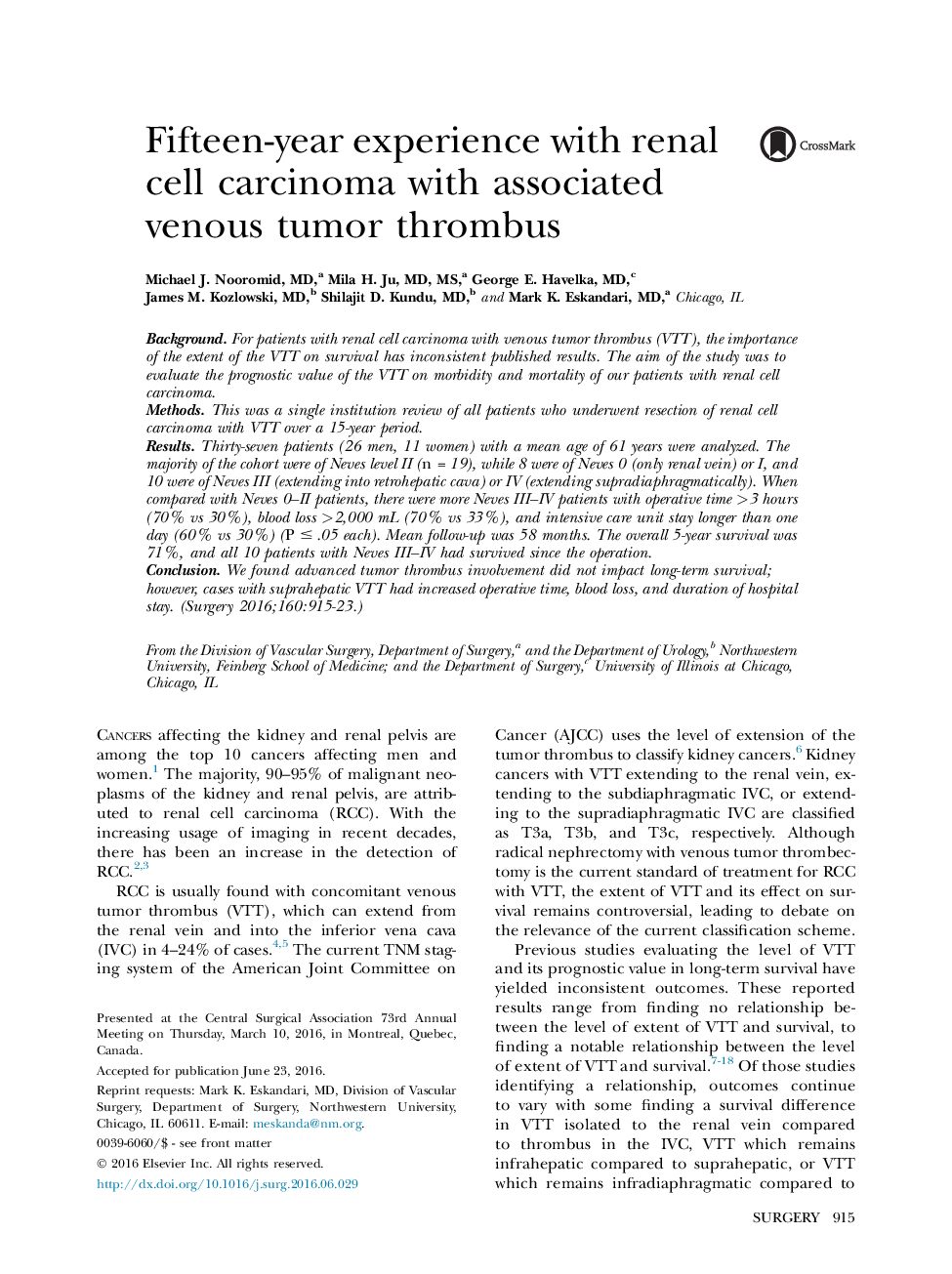| Article ID | Journal | Published Year | Pages | File Type |
|---|---|---|---|---|
| 4306350 | Surgery | 2016 | 9 Pages |
BackgroundFor patients with renal cell carcinoma with venous tumor thrombus (VTT), the importance of the extent of the VTT on survival has inconsistent published results. The aim of the study was to evaluate the prognostic value of the VTT on morbidity and mortality of our patients with renal cell carcinoma.MethodsThis was a single institution review of all patients who underwent resection of renal cell carcinoma with VTT over a 15-year period.ResultsThirty-seven patients (26 men, 11 women) with a mean age of 61 years were analyzed. The majority of the cohort were of Neves level II (n = 19), while 8 were of Neves 0 (only renal vein) or I, and 10 were of Neves III (extending into retrohepatic cava) or IV (extending supradiaphragmatically). When compared with Neves 0–II patients, there were more Neves III–IV patients with operative time >3 hours (70% vs 30%), blood loss >2,000 mL (70% vs 33%), and intensive care unit stay longer than one day (60% vs 30%) (P ≤ .05 each). Mean follow-up was 58 months. The overall 5-year survival was 71%, and all 10 patients with Neves III–IV had survived since the operation.ConclusionWe found advanced tumor thrombus involvement did not impact long-term survival; however, cases with suprahepatic VTT had increased operative time, blood loss, and duration of hospital stay.
